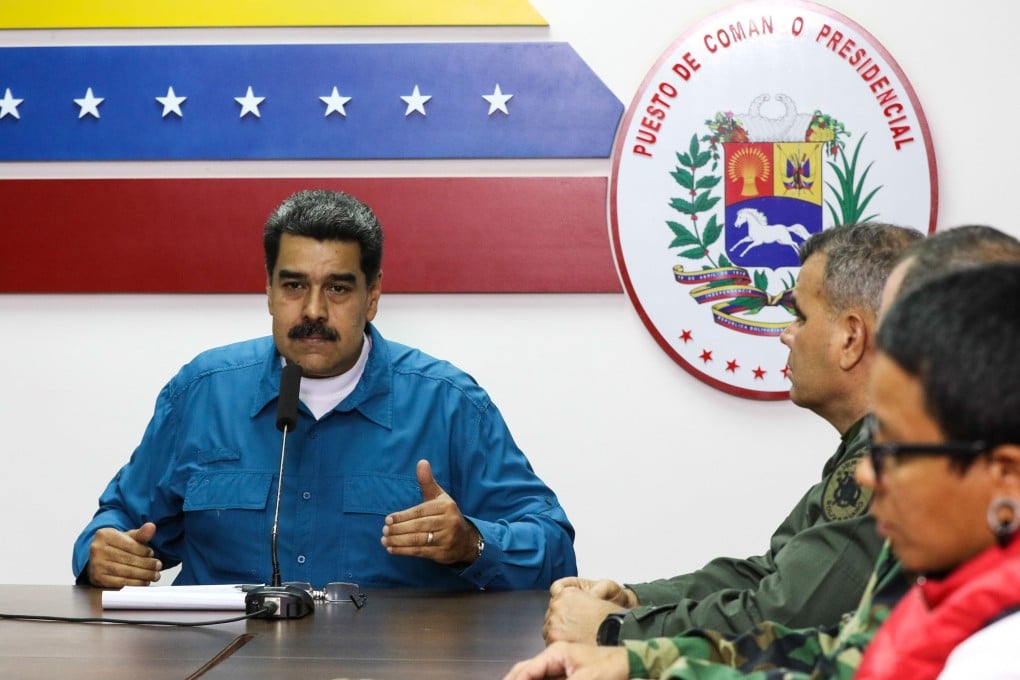Venezuela President Nicolas Maduro announces electricity rationing amid power cuts
- Plan will help deal with cuts that have also affected water supply and communications and Maduro warned against unrest in reaction to the blackouts

Venezuelan President Nicolas Maduro on Sunday announced a 30-day plan to ration electricity following nationwide power cuts that have inflicted misery on millions of people and ignited protests, including one near the presidential palace in Caracas.
The rationing plan will help deal with the cuts that have also affected water supply and communications for days at a time, Maduro said in a speech on national television in which he also warned against unrest in reaction to the blackouts.

Hours before Maduro’s appeal for calm, protests broke out in neighbourhoods in the capital and other cities following a call by opposition leader Juan Guaido to demonstrate against the government’s failure to provide basic services. Many took to balconies and building windows to bang pots in protest and shout curses at Maduro. They also burned rubbish and blocked roads.

While police did not intervene in most cases, alleged government supporters known as “colectivos” appeared in some areas on motorbikes and threatened protesters, who quickly dispersed. The colectivos are sometimes armed and video posted on social media showed masked men as well as men firing shots in the streets.
In his speech, Maduro said colectivos and other pro-government groups should keep order as Venezuela grapples with the blackouts, which he has blamed on US-led sabotage.